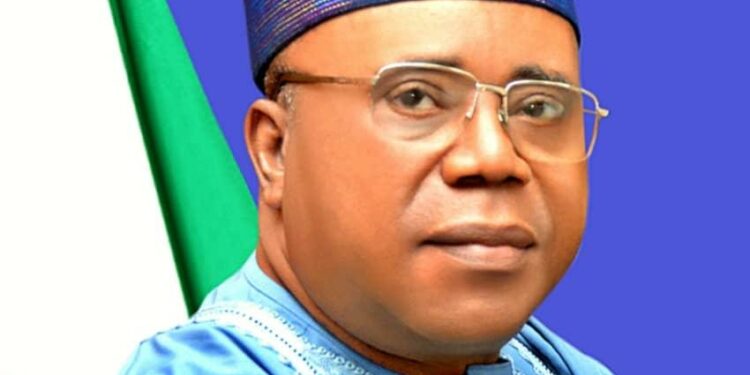Major stakeholders in the Niger Delta region have commended the immediate past minister of Niger Delta Affairs, Mr Umana Okon Umana, over his leadership style and its impact on the Niger Delta region.
They described his stint at the ministry as “full of impact in the key areas needed to bring accountability and stability to the Niger Delta Development Commission (NDCC) and the Ministry of Niger Delta Affairs.”
Led by president-general of the Conference of Ethnic Nationalities in the Niger Delta, Prof. Benjamin Okaba, the all-Niger Delta delegation of leaders, who visited the former minister in his office, expressed the appreciation of their people to Umana “for his short but impactful” tenure at the ministry.
Okaba said the Niger Delta people were grateful to Umana for the constitution of the board of the NDDC and for his style of leadership that was devoid of undue interference in the affairs of the commission.
The chairman of Critical Stakeholders’ Executives, Chief Anabs Sara Igbe, described the relationship between the NDDC and its supervising ministry under Umana as a remarkable departure from the past. Igbe extolled Umana’s “understanding and leadership that have made all the difference,” urging leaders of the region to maximise the opportunities which the ministry represents because it may not be there forever.
Another member of the delegation and president of Oron National Forum, Chief Ita Ante, described Umana as a compassionate man.
Other members of the delegation included T.K. Ogoriba, chairman of Mosiend Elders Council; Rosebella Jackson, Mosiend member of Mosiend Elders Council; Chief R.F Thompson, president of NDPFF; Omusuku Charles of MEND; Comrade Kennedy T. West, president of Mosiend; Bishop Victor Thomas, national chaplain; and Marshall Kunoun, vice-chairman of Mosiend Elders Council.
Umana, who thanked immediate past President Muhammadu Buhari for all the positive changes that took place in the NDDC and the Ministry of Niger Delta Affairs, said he was humbled by the kind words from his guests over his contributions as minister.
He said at the outset of his assignment as minister he needed to address a few issues, top of which was the constitution of the board of the NDDC.
“I knew the commission could not function properly without a board,” he said. “Even the International Oil Companies (IOCs) were not willing to deal with the commission because of the board issue.” He explained that without a board the commission, which is a creation of the law, could not be functioning according to law.
Umana said that as a deliberate policy he informed the chief executive of the NDDC that he was in charge of running the commission, and that the minister would only supervise. “For me, there is a difference between supervision and interference,” Umana said.
He said the government needed to put in place and execute a policy of accountability and transparency to bring to an end the rancour in the region. He said the interest of the region was of paramount consideration for the government which made it go ahead with the constitution of the board despite unrelenting pressure to the contrary. “That is why I feel sad about the crisis in the board,” Umana said. “Leaders of the region need to advise those causing trouble to follow the law. We have issues but we should not de-market our region,” he added.
Umana said among the positive developments in the ministry during his tenure was the approval of the 2023 budget, which marked a departure from the previous two years when there were no approved budgets for 2021 and 2022. He said another noteworthy development was the publication by the NDDC of a compendium of projects completed by the commission during the Buhari administration as a demonstration of commitment to accountability and transparency. He said the compendium was also an opportunity for the commission to tell its story, rather than wait for others to do so in a manner that may not reflect the true facts on the ground.



